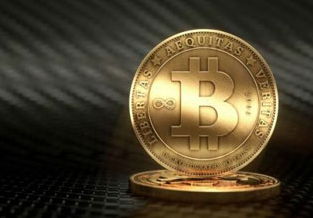Introduction to Bitcoin: A Comprehensive Guide

Bitcoin, the first decentralized digital currency, has revolutionized the financial world since its inception in 2009. This article aims to provide a comprehensive guide to Bitcoin, covering its basics, technology, and impact on the global economy.
Understanding Bitcoin: The Basics

Bitcoin is a cryptocurrency, which means it is a digital asset designed to work as a medium of exchange that uses cryptography to secure its transactions, control the creation of additional units, and verify the transfer of assets. Unlike traditional fiat currencies, Bitcoin operates independently of any central authority, such as a government or central bank.
Each Bitcoin is divided into smaller units called satoshis, named after the creator of Bitcoin, Satoshi Nakamoto. The total supply of Bitcoin is capped at 21 million, ensuring scarcity and value over time.
The Technology Behind Bitcoin: Blockchain

Bitcoin's underlying technology is the blockchain, a decentralized ledger that records all transactions across a network of computers. This ledger is maintained by a network of participants called nodes, which work together to validate and secure transactions.
The blockchain operates on a peer-to-peer (P2P) network, where each node has a copy of the entire ledger. This decentralized nature ensures that no single entity has control over the network, making Bitcoin resistant to censorship and manipulation.
Transactions are grouped into blocks, which are then added to the blockchain in a linear, chronological order. Each block contains a unique hash, which links it to the previous block, forming a chain of blocks. This process is known as Proof of Work (PoW), which requires significant computational power to solve complex mathematical puzzles and secure the network.
The Role of Miners in the Bitcoin Network

Miners are crucial to the Bitcoin network as they validate and secure transactions. They use their computational power to solve the PoW puzzles, which allows them to add new blocks to the blockchain. In return, miners are rewarded with Bitcoin for their efforts.
As the difficulty of the puzzles increases over time, the computational power required to mine Bitcoin also increases. This ensures that the rate of new Bitcoin creation slows down as the network matures.
The Impact of Bitcoin on the Global Economy

Bitcoin has had a significant impact on the global economy, challenging traditional financial systems and fostering innovation in the financial sector. Some of the key impacts include:
Decentralization: Bitcoin's decentralized nature allows for borderless transactions, reducing the need for intermediaries and lowering transaction costs.
Financial Inclusion: Bitcoin provides access to financial services for unbanked or underbanked populations, enabling them to send and receive money without relying on traditional banking systems.
Investment Opportunities: Bitcoin has become a popular investment asset, attracting both retail and institutional investors seeking alternative stores of value.
Innovation: The blockchain technology behind Bitcoin has sparked innovation in various industries, including finance, supply chain, and healthcare.
Challenges and Concerns Surrounding Bitcoin

Despite its numerous benefits, Bitcoin faces several challenges and concerns:
Volatility: Bitcoin's price is highly volatile, which can make it a risky investment for some users.
Scalability: The blockchain's current capacity to process transactions is limited, which can lead to network congestion and high transaction fees.
Regulatory Uncertainty: The lack of a clear regulatory framework for cryptocurrencies has raised concerns about legal and regulatory issues.
Sustainability: The energy consumption associated with mining Bitcoin has raised concerns about its environmental impact.
Conclusion

Bitcoin has emerged as a transformative force in the financial world, challenging traditional systems and fostering innovation. While it faces challenges and concerns, its potential to revolutionize the global economy remains a topic of intense debate and interest. As the world continues to evolve, Bitcoin and its underlying technology will undoubtedly play a significant role in shaping the future of finance.
bitcoin cryptocurrency blockchain mining financialinnovation bitcoinwhitepaper decentralization volatility regulatoryuncertainty sustainability

